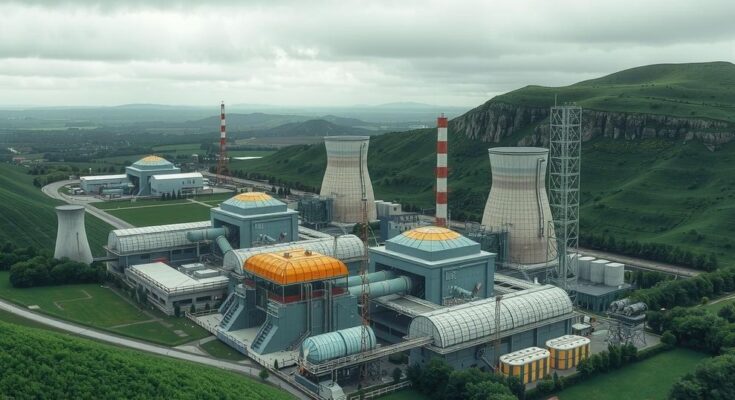This article discusses U.S. preparations for ceasefire talks with Russia, focusing on Trump’s interest in acquiring Ukraine’s nuclear energy infrastructure. It highlights concerns regarding Putin’s reliability, the complexity of negotiations, and skepticism from security experts on the effectiveness of U.S. ownership as a deterrent and a means to peace.
As U.S. officials prepare for discussions with Russia in Saudi Arabia regarding a ceasefire, uncertainties arise regarding the Trump administration’s strategy to persuade Moscow to extend a temporary truce. Russian President Vladimir Putin has recently consented to pause strikes on Ukraine’s energy infrastructure, including Europe’s largest nuclear facility, the Zaporizhzhia Nuclear Power Station.
Secretary of State Marco Rubio and National Security Advisor Mike Waltz are slated to attend the negotiations, emphasizing the objective of securing a ceasefire in the Black Sea region. Previous agreements, such as the Black Sea Grain Initiative established in 2022 to facilitate Ukrainian agricultural exports, faced challenges as Putin withdrew from the arrangement in 2023. Security analysts express skepticism about Putin’s reliability.
In addition to the ceasefire discussions, Ukraine’s nuclear energy sector may also emerge as a significant topic. Trump’s recent business focus has shifted towards American involvement in Ukraine’s nuclear facilities and electrical supply. A joint statement from Rubio and Waltz posits that American stewardship of these plants would enhance infrastructure security.
Rebekah Koffler, a former DIA intelligence officer, underscored skepticism regarding Putin’s reaction to Trump’s proposed ownership, stating, “Putin almost certainly is not in favor of this idea and will attempt to sabotage such a deal.” Koffler also remarked that gaining control over the Zaporizhzhia nuclear plant might be met with resistance by Russia, given its current hold.
Trump’s interest in Ukraine’s energy infrastructure symbolizes an effort to strengthen its defenses, although the level of existing American involvement in Ukraine during the ongoing conflict complicates the narrative. Koffler noted that this takeover could be perceived by Putin as a breach of Ukraine’s sovereignty and a potential threat.
Former CIA Moscow station chief Dan Hoffman expressed doubts about the influence of U.S. energy ownership on peace negotiations, suggesting it would not fundamentally alter the conflict dynamics. Despite recent commitments from Putin, continued attacks on Ukrainian infrastructure raise concerns about the reliability of any ceasefire agreements.
Hoffman posited that the core issue remains whether Putin genuinely seeks an end to the war, highlighting that without such intent, reaching a lasting resolution would be challenging. He indicated that historically, wars conclude only when one side acquires enough leverage to prevail, asserting, “One side loses, one side wins, or both sides don’t have the means to fight anymore.”
In conclusion, as the U.S. prepares for ceasefire talks with Russia, the potential American ownership of Ukraine’s nuclear facilities emerges as a contentious issue. Security experts remain skeptical about Putin’s intentions and the likelihood of a stable truce. Ultimately, significant obstacles loom over negotiations, and historical patterns suggest that resolution can only occur through substantial shifts on the battlefield.
Original Source: www.foxnews.com




